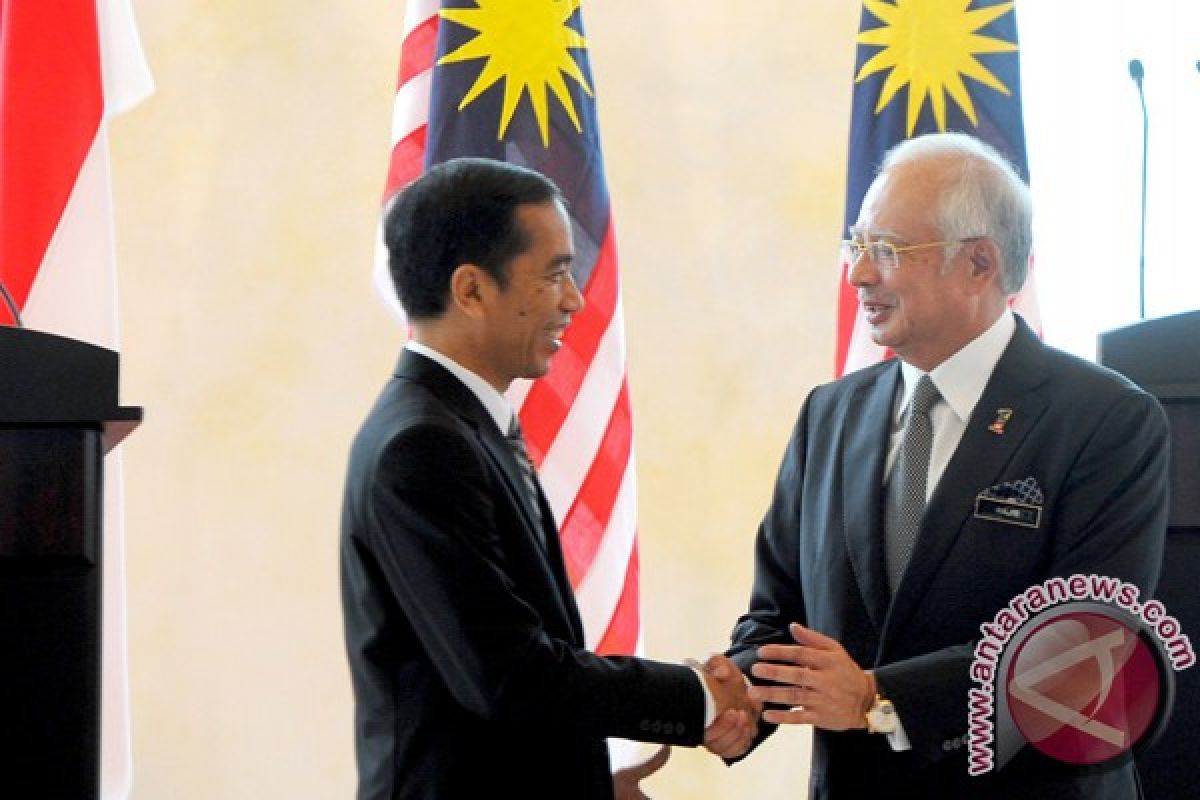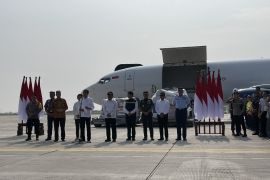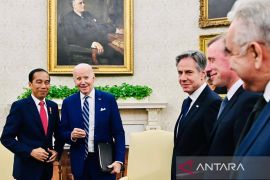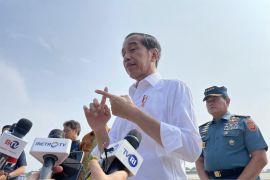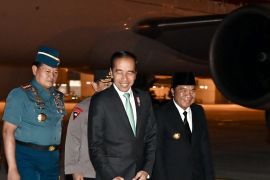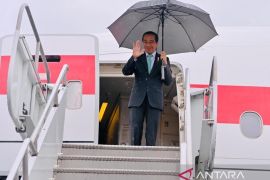According to Siti Mutiah Setiawati, a lecturer of international relations at Gadjah Mada University (UGM), the presidents visit to Malaysia will improve bilateral relations between the two nations.
Besides deliberating over economic cooperation, they also discussed issues related to common borders and migrant workers, which Indonesia has sent a large number of to Malaysia, so far.
In the economic field, they also discussed cooperation in investment, trade, banking, infrastructure, electricity, tourism and the automotive industry.
During his two-day visit, President Joko Widodo, better known as Jokowi, discussed bilateral issues with Malaysian Prime Minister Najib Tun Razak, including maritime border cooperation, improving trade and investment, managing fishermen, sending migrant workers to Malaysia, and educating the children of Indonesian migrant workers in Sabah and Sarawak.
On issues related to Indonesian migrant workers (TKI), Setiawati stated that the president and his ministers must practice positive diplomacy, especially with regard to the workers.
Strategic diplomacy is needed to defend the right of Indonesian migrant workers abroad to be treated well, she explained, adding that a few days ago, an advertisement insulting Indonesian people had appeared in Malaysia.
"While the government should seek clarification on the issue, it should not get angry," she pointed out.
Besides TKI-related problems, the two countries also held discussions over border issues that posed a problem in their relations frequently.
Therefore, during his two-day visit to Malaysia, the nations agreed to settle their border disputes so that they no longer disrupt bilateral relations in future, among others issues.
"We will resolve border disputes as soon as possible, or else they will disrupt our relations with Malaysia," President Jokowi told reporters after a get-together with Indonesian citizens in Malaysia at the Indonesian embassy on Friday evening.
At the bilateral meeting, both nations also agreed to enhance cooperation in the fields of investment and trade, he affirmed.
"Cooperation between Indonesia and Malaysia in the field of investment and trade will be strengthened," the president stressed.
According to Chief Economic Minister Sofyan Djalil, Malaysia is interested in investing in various sectors in Indonesia, such as toll roads and electricity plants.
"They will invest in those sectors. In the coming two weeks, they will discuss it with the Indonesian Investment Coordinating Board (BKPM), state-owned power company PLN and others. They basically hope to reciprocate their good intentions through investment," Djalil remarked.
With regard to the plan of Proton to invest in the automotive industry in Indonesia, the chief economic minister said the plan will be based on a business-to-business scheme.
"There is a plan to expand the business or develop a factory in Indonesia, but it is still in the initial stages and needs to be followed up with a feasibility study," he observed.
He added that the car market in Indonesia is competitive, because of which Proton is planning to expand its business in Indonesia.
Furthermore, Indonesia has also asked the Malaysian government to facilitate the entry of its banks into the country to help expand their business.
"President Joko Widodo discussed the banking problem with Malaysian Prime Minister Mohammad Najib Razak during their meeting," Djalil revealed.
Malaysias Maybank can open a branch office in Indonesia, but Indonesian banks face difficulty when they wish to open their branches in Malaysia.
He added that the Malaysian prime minister had given a positive response during a discussion on the matter. "They offered assistance to facilitate the opening of branches in Malaysia for Indonesian banks," Djalil assured.
Moreover, Foreign Affairs Minister Retno L. P. Marsudi stated that Indonesia wants to increase the number of tourist visits from Malaysia as that will enhance cooperation between both countries.
"Malaysia is one of Indonesias important partners among member states of the ASEAN. Besides increasing investments, Malaysian tourist visits to Indonesia in large numbers will support the relationship," Marsudi noted.
This year, she said, Malaysia is the ASEAN chair. Many issues have been discussed to strengthen our friendship and cooperation. " Malaysia is the closest ASEAN member country to Indonesia geographically. So we need to strengthen relations, including in tourism," she stressed.
"We will follow up the discussion with Malaysian Prime Minister Najib Razak. The total number of Malaysian tourists visiting Indonesia has reached 1 million per year," she pointed out.
Marsudi added that the two state leaders had also discussed ways to develop cooperation in the sectors of trade and labor. Besides in the investment and tourism sectors, the leaders also discussed efforts to increase cooperation in the trade and manpower fields, she affirmed.
The high-ranking officers who accompanied Jokowi on the two-day visit to Malaysia included Coordinating Minister for Economics Sofyan Djalil, Labor Affairs Minister Hanif Dzakiri, Trade Affairs Minister Rahmat Gobel, and the Head of the Agency for Placement and Protection of Indonesian Migrant Workers Nusron Wahid.
(A014/INE)
EDITED BY INE
(A014/KR-BSR/H-YH)
Reporter: Andi Abdussalam
Editor: Jafar M Sidik
Copyright © ANTARA 2015
